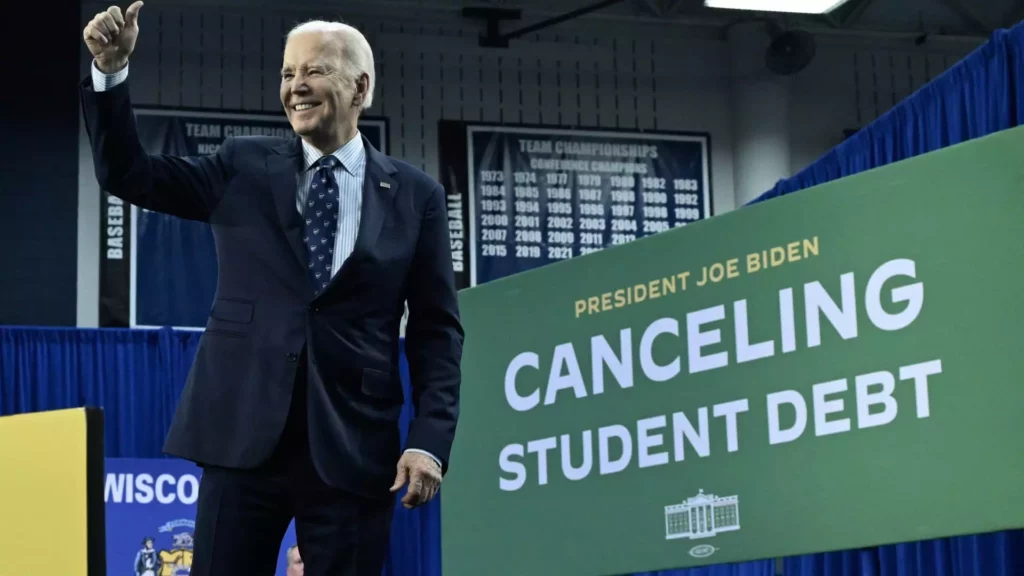![]()
Many Americans have voiced their support for President Joe Biden’s plan to forgive student loans. One individual, a 52-year-old with significant debt from years ago, expressed frustration with the ever-increasing interest rates on their loans. They painted a bleak picture of the future, stating that they expect to die with student loan debt. This sentiment is shared by many who feel overwhelmed by their financial obligations and see loan forgiveness as a lifeline.
Despite the widespread support for loan forgiveness, there are dissenting voices as well. Some argue that it is unfair to burden taxpayers, many of whom did not attend college, with the responsibility of funding debt forgiveness. They believe that individuals who chose to pursue higher education should bear the cost of their decisions and that taxpayer money should not be used to alleviate their financial burdens.
Proponents of student loan forgiveness highlight the potential economic benefits of such a policy. They argue that relieving individuals of their debt will free up more money to be spent in local economies, benefiting small businesses and communities as a whole. This increased spending power can have a ripple effect, boosting economic activity and potentially stimulating growth.
From a social justice standpoint, advocates for student loan forgiveness emphasize the importance of addressing the disparities faced by marginalized communities. Individuals from minority backgrounds, such as African Americans, often lack access to generational wealth and rely on financial aid to pursue education. By forgiving student loans, policymakers can help bridge the gap and empower these communities to achieve economic security and participate fully in society.
On the other hand, there are those who believe that personal responsibility should be a guiding principle when it comes to student loans. They argue that individuals who choose to pursue higher education should be prepared to make sacrifices and face the consequences of their choices. For them, student loan forgiveness is seen as an attempt to shift the burden of personal decisions onto taxpayers and undermine the value of hard work and self-reliance.
Individuals from working-class backgrounds have shared their struggles with student loan debt, emphasizing the pressure it puts on them and their families. Many feel trapped in a cycle of debt, grappling with various financial obligations while trying to secure a better future for themselves and their children. The idea of college as a gateway to the American Dream has been tarnished by the complexities of student loan repayment and the financial strain it imposes.
The public comments on Biden’s student loan forgiveness proposal reflect a diverse range of perspectives and experiences. While some see it as a much-needed intervention to alleviate financial hardships and promote economic growth, others view it as a misguided policy that undermines personal responsibility and fairness. As policymakers consider the feedback and craft a path forward, they must take into account the complex interplay of economic, social, and moral considerations at play.

Leave a Reply